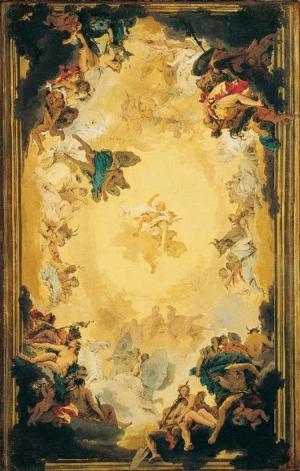The Voyages of Captain Scott: Retold from the Voyage of the Discovery and Scott's Last Expedition
Nonfiction, Religion & Spirituality, New Age, History, Fiction & Literature| Author: | Charles Turley | ISBN: | 9781465547392 |
| Publisher: | Library of Alexandria | Publication: | March 8, 2015 |
| Imprint: | Language: | English |
| Author: | Charles Turley |
| ISBN: | 9781465547392 |
| Publisher: | Library of Alexandria |
| Publication: | March 8, 2015 |
| Imprint: | |
| Language: | English |
On the night of my original meeting with Scott he was but lately home from his first adventure into the Antarctic and my chief recollection of the occasion is that having found the entrancing man I was unable to leave him. In vain he escorted me through the streets of London to my home, for when he had said good-night I then escorted him to his, and so it went on I know not for how long through the small hours. Our talk was largely a comparison of the life of action (which he pooh-poohed) with the loathsome life of those who sit at home (which I scorned); but I also remember that he assured me he was of Scots extraction. As the subject never seems to have been resumed between us, I afterwards wondered whether I had drawn this from him with a promise that, if his reply was satisfactory, I would let him go to bed. However, the family traditions (they are nothing more) do bring him from across the border. According to them his great-great-grandfather was the Scott of Brownhead whose estates were sequestered after the '45. His dwelling was razed to the ground and he fled with his wife, to whom after some grim privations a son was born in a fisherman's hut on September 14, 1745. This son eventually settled in Devon, where he prospered, Page 2 for it was in the beautiful house of Oatlands that he died. He had four sons, all in the Royal Navy, of whom the eldest had as youngest child John Edward Scott, father of the Captain Scott who was born at Oatlands on June 6, 1868. About the same date, or perhaps a little earlier, it was decided that the boy should go into the Navy like so many of his for-bears. I have been asked to write a few pages about those early days of Scott at Oatlands, so that the boys who read this book may have some slight acquaintance with the boy who became Captain Scott; and they may be relieved to learn (as it holds out some chance for themselves) that the man who did so many heroic things does not make his first appearance as a hero. He enters history aged six, blue-eyed, long-haired, inexpressibly slight and in velveteen, being held out at arm's length by a servant and dripping horribly, like a half-drowned kitten. This is the earliest recollection of him of a sister, who was too young to join in a children's party on that fatal day. But Con, as he was always called, had intimated to her that from a window she would be able to see him taking a noble lead in the festivities in the garden, and she looked; and that is what she saw. He had been showing his guests how superbly he could jump the leat, and had fallen into it. Leat is a Devonshire term for a running stream, and a branch of the leat ran through the Oatlands garden while there was another branch, more venturesome, at the bottom of the fields. These were the waters first ploughed by Scott, and he invented many ways of being in them accidentally, it being forbidden Page 3 to enter them of intent. Thus he taught his sisters and brother a new version of the oldest probably of all pastimes, the game of 'Touch.' You had to touch 'across the leat,' and, with a little good fortune, one of you went in. Once you were wet, it did not so much matter though you got wetter
On the night of my original meeting with Scott he was but lately home from his first adventure into the Antarctic and my chief recollection of the occasion is that having found the entrancing man I was unable to leave him. In vain he escorted me through the streets of London to my home, for when he had said good-night I then escorted him to his, and so it went on I know not for how long through the small hours. Our talk was largely a comparison of the life of action (which he pooh-poohed) with the loathsome life of those who sit at home (which I scorned); but I also remember that he assured me he was of Scots extraction. As the subject never seems to have been resumed between us, I afterwards wondered whether I had drawn this from him with a promise that, if his reply was satisfactory, I would let him go to bed. However, the family traditions (they are nothing more) do bring him from across the border. According to them his great-great-grandfather was the Scott of Brownhead whose estates were sequestered after the '45. His dwelling was razed to the ground and he fled with his wife, to whom after some grim privations a son was born in a fisherman's hut on September 14, 1745. This son eventually settled in Devon, where he prospered, Page 2 for it was in the beautiful house of Oatlands that he died. He had four sons, all in the Royal Navy, of whom the eldest had as youngest child John Edward Scott, father of the Captain Scott who was born at Oatlands on June 6, 1868. About the same date, or perhaps a little earlier, it was decided that the boy should go into the Navy like so many of his for-bears. I have been asked to write a few pages about those early days of Scott at Oatlands, so that the boys who read this book may have some slight acquaintance with the boy who became Captain Scott; and they may be relieved to learn (as it holds out some chance for themselves) that the man who did so many heroic things does not make his first appearance as a hero. He enters history aged six, blue-eyed, long-haired, inexpressibly slight and in velveteen, being held out at arm's length by a servant and dripping horribly, like a half-drowned kitten. This is the earliest recollection of him of a sister, who was too young to join in a children's party on that fatal day. But Con, as he was always called, had intimated to her that from a window she would be able to see him taking a noble lead in the festivities in the garden, and she looked; and that is what she saw. He had been showing his guests how superbly he could jump the leat, and had fallen into it. Leat is a Devonshire term for a running stream, and a branch of the leat ran through the Oatlands garden while there was another branch, more venturesome, at the bottom of the fields. These were the waters first ploughed by Scott, and he invented many ways of being in them accidentally, it being forbidden Page 3 to enter them of intent. Thus he taught his sisters and brother a new version of the oldest probably of all pastimes, the game of 'Touch.' You had to touch 'across the leat,' and, with a little good fortune, one of you went in. Once you were wet, it did not so much matter though you got wetter















